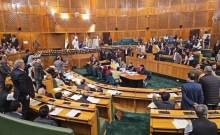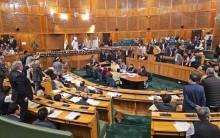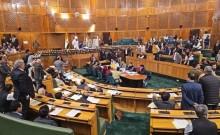Two hundred cattle traders of Rojka Meo, a village in Mewat, Haryana, are on the verge of giving up their traditional livelihood of sale and purchase of buffaloes which they claim may become way more dangerous from now onwards following the severe communal clashes that rocked Nuh district just a few days ago.
"It has become too dangerous due to beatings, extortion bids and cattle 'rescue' staged by the Gau Raksha Dals (GRDs) against us," a cattle trader told IANS on the condition of anonymity.
All transporters here say that legitimately taking cattle from and to buyers or sellers in other states has become much more expensive since the extortion bids started a couple of years ago.
They say that policemen take Rs 2,000 to Rs 3,000 as bribes, while vigilante groups demand Rs 3000 to Rs 4,000 per vehicle carrying cattle. This raises the costs for each trip by Rs 6,000 to Rs 7,000, On top of this, transporting cattle now even poses a risk to their lives.
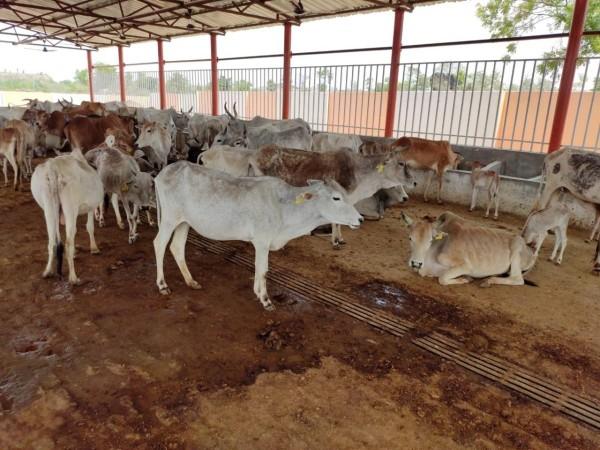
Illegal penalties, manhandling and harassment by vigilante groups have created an atmosphere of fear in the entire Mewat region, which extends from Haryana to Rajasthan. The GRDs say they wish to save cows from slaughter, as Hindus revere cows. Ironically, in Rojka Meo, most cattle trade is in buffaloes.
Residents here are mostly Mewati Muslims, and they feel the GRDs target them due to their identity, not because they love cows.
"We feel it is discrimination against us. The GRD attacks feel as if they are targeting us," said Afsar Khan.
Cattle traders take loans to buy cattle, and sell them for a profit. The loans are not to be paid back, but are carried forward over generations, and bear no or very low interest. For the traders buffaloes are their only saleable asset that can fetch Rs 35,000 to Rs 50,000 depending on its health.
The impact of the GRDs is being felt across Mewat, where one million people live, 70 per cent of them Muslims. Many villages here depend solely on buying and selling cattle as the Muslims are landless and the farms are not as productive. These traders often trace their roots in this trade to 150 years back or longer.
"I'm 30 and my father is in his 80s but even his grandfather did this work. We were traders when kings and queens ruled India, during the British raj and after independence. Now we fear for our lives on the road," said Raes.
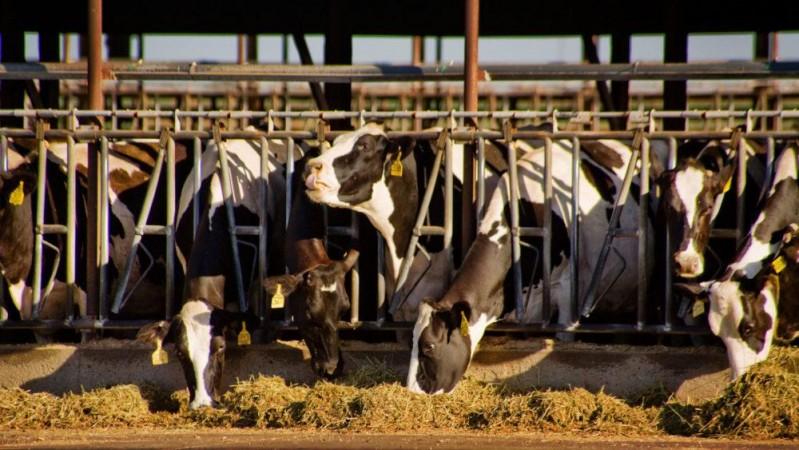
The GRDs accuse Mewatis of selling cows for slaughter and ferrying buffaloes "cruelly". The traders say the cow trade has shrunk to negligible levels but even shifting to the buffalo trade has not helped them. The buffaloes are being confiscated under laws that forbid cruelty to animals.
"GRDs want to sell our buffaloes themselves. That's why they call us cruel. What is so kind about stuffing hundreds of cows in cramped gaushalas where they are ill-fed" said Mohammed Manjoor.
"Even the police doesn't understand cruelty laws well" said a senior Haryana cop. "We tell GRDs not to put up their own barriers on the roads, etc . However, even the smugglers break nakas, open fire at you," said the cop.
Cattle transporters are halted at roadblocks in and around Delhi, by the police, cow vigilante groups and even traffic policemen. The GRDs go so far as to carry self-made identity cards, which fool the rural, unfettered Mewati traders into believing that they have authority to inspect their trucks. Lathis and other weapons silence most people anyway.
"They demand money to let us go. If we refuse, they beat us badly and take our cattle," said Zakhir Qureshi.
Qureshi said that if the police catches them, they take the cattle to a veterinary hospital run by the People for Animals (PFA).
Usually, such cattle can be released after a court order. "Even if we get court orders, these shelters refuse to return our cattle. Or they demand so much money as the cost of feeding and treating our cattle that we have to leave them," said Mohd Manjoor .
"This is discrimination... maybe the GRD people themselves sell and buy cattle," he added.
"Our food depend on cattle trading. We buy cattle from villages all over north India. Farmers sell them to us, to take to mandis or to other farmers. The vigilante groups have snatched away our only source of earning. We want to get out of this trade... it doesn't even pay for our children's schooling anymore," said Yunus Khan.


